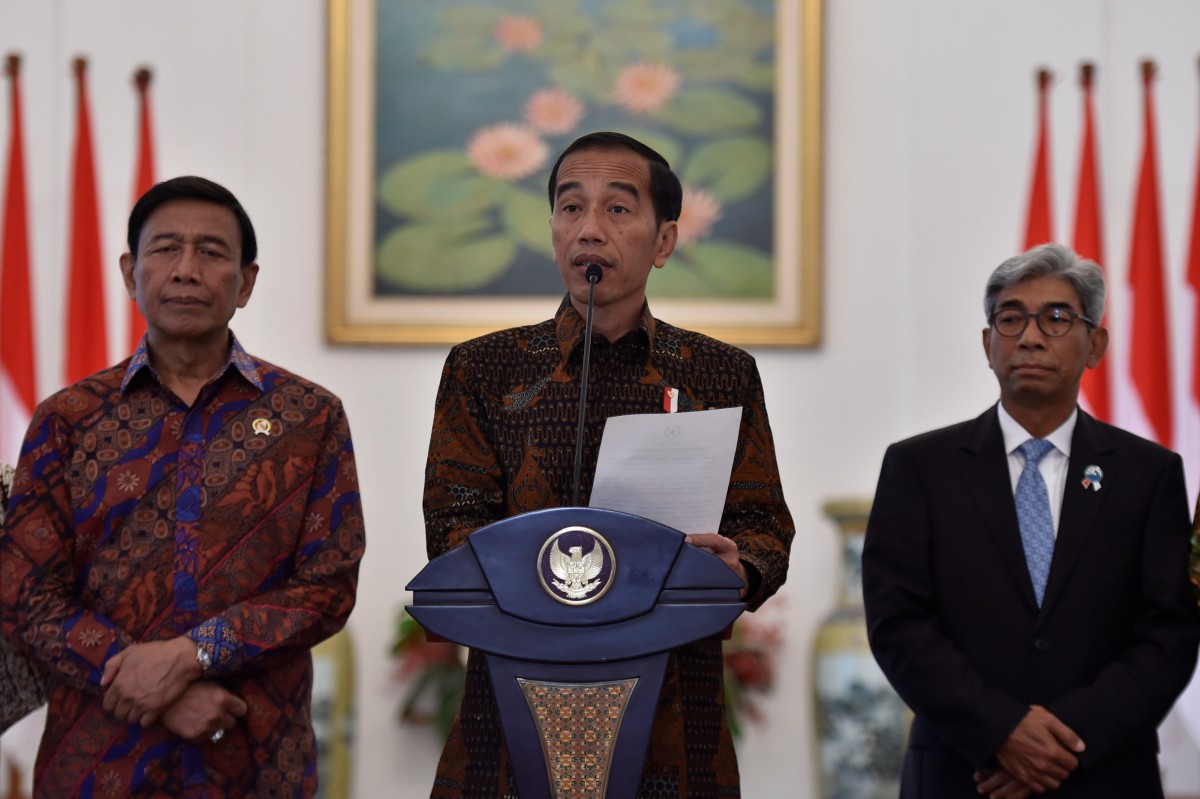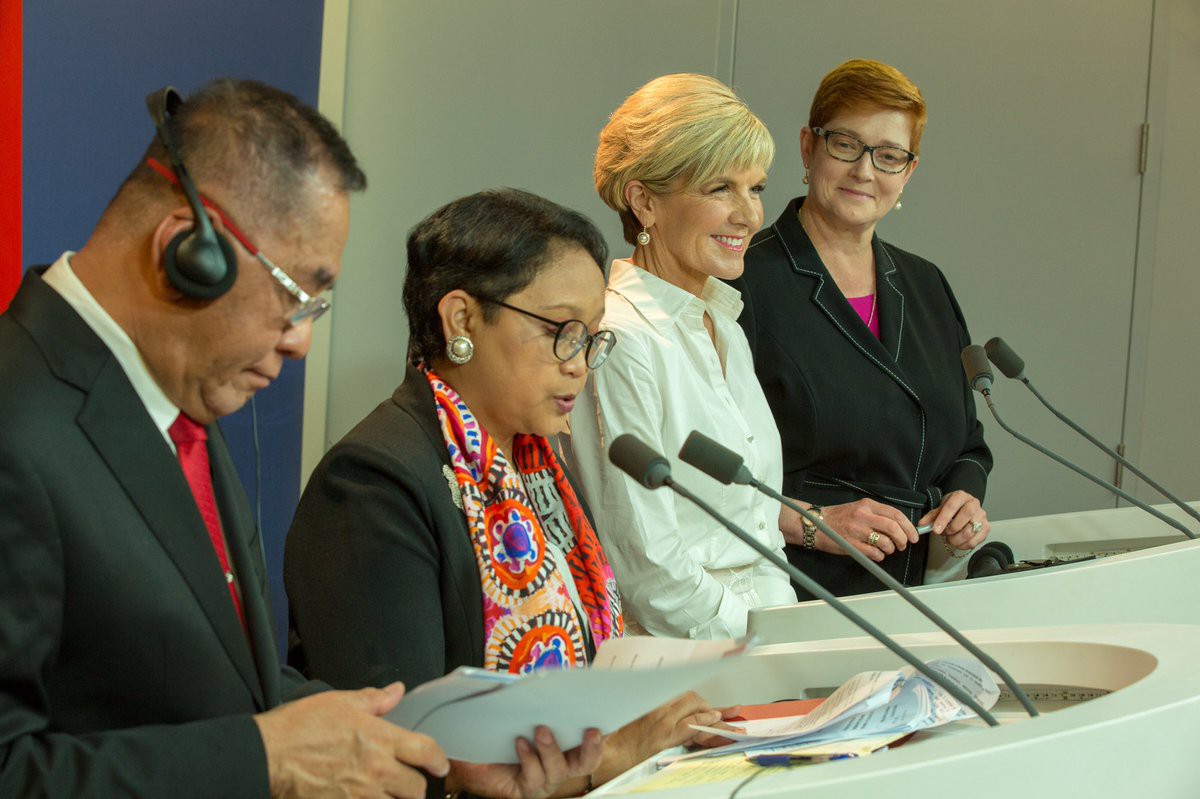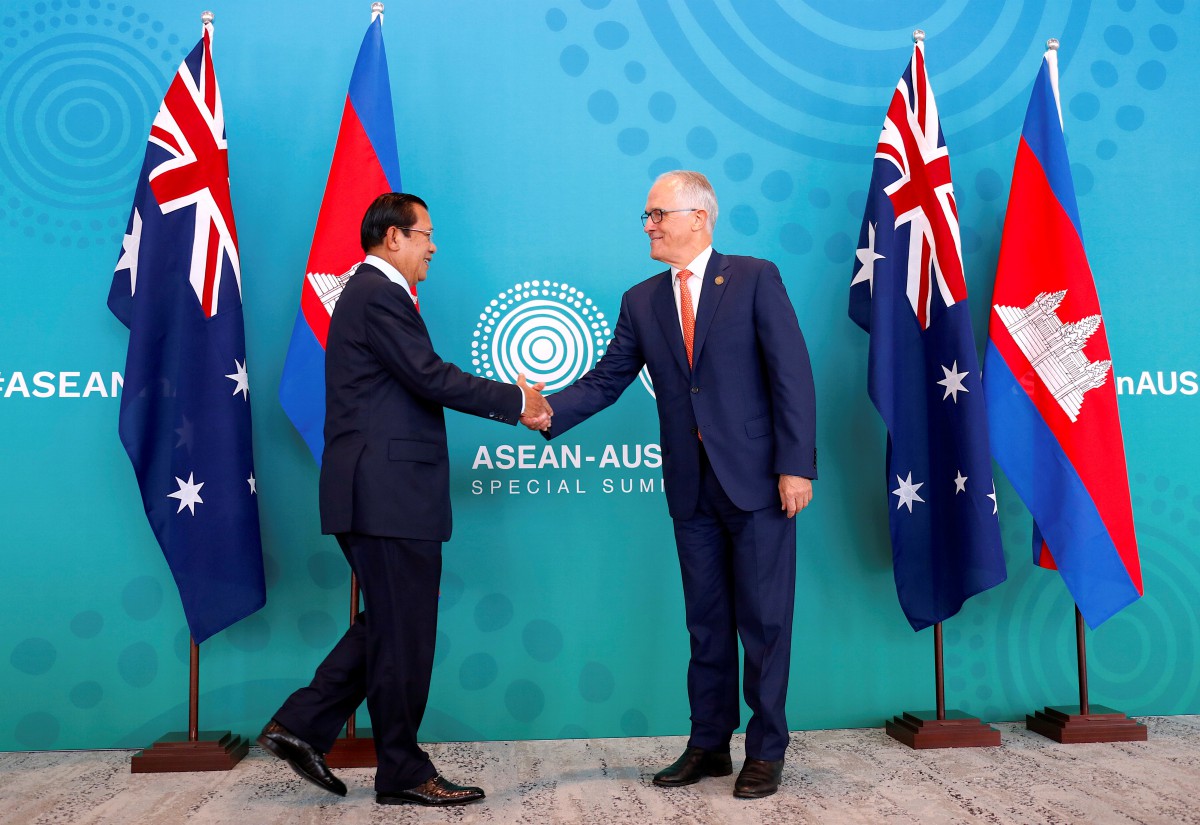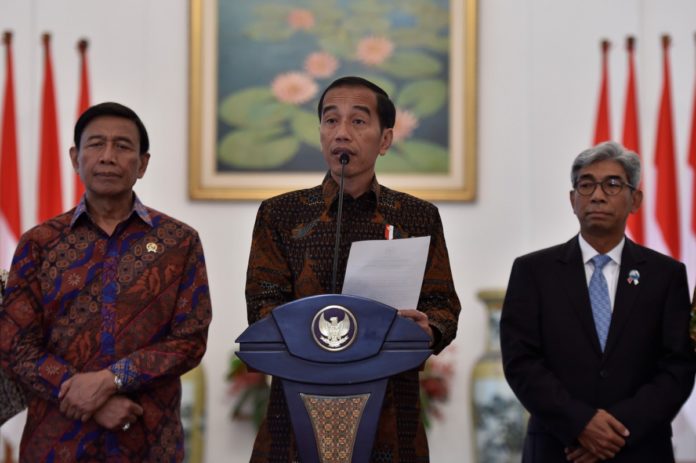AS AUSTRALIA has geared up to host a so-called Special Summit for the Association of Southeast Asian Nations (Asean) this weekend, the question of whether it may one day join the regional bloc has come up for debate.
Australia was the first country to establish a multilateral relationship with Asean in 1974 and has had a free trade agreement with the grouping along with New Zealand since 2008. With the Summit focused on Australia deepening its strategic and economic ties with its fourth largest trading partner, a decades’ old question has re-remerged: could it one day become a full member?
Indonesia’s President Joko “Jokowi” Widodo told the Sydney Morning Herald this week that he thought Australia joining the regional bloc was a “good idea” because “our region will be better, [for] stability, economic stability, and also political stability. Sure, it will be better.”
SEE ALSO: Asean-Australia Special Summit marks step toward a deeper relationship
But in a region where losing face and open confrontation are avoided, Jokowi was “most likely either being polite or he meant Australia should be engaged with Asean rather than actual full membership,” said A. Ibrahim Almuttaqi, Head of the Asean Studies Program at The Habibie Center in Jakarta.
“Jokowi always gives these non-committal responses which can be misconstrued by people who haven’t spent much time in Indonesia,” Aaron Connelly, Research Fellow in the East Asia Program at the Lowy Institute in Sydney told Asian Correspondent. “It’s a very Javanese way of saying ‘Inshallah’ (God willing).”
Indeed, Jokowi – an enthusiastic proponent of harsh anti-drug policies involving the death penalty – has previously said that Indonesia would abolish capital punishment if his citizens wished it, knowing full well that a majority of the population is in support.

Indonesian President Joko Widodo (C) makes a statement on the US recognition of Jerusalem as Israel’s capital, at the Presidential Palace in Bogor, West Java, Indonesia December 7, 2017 in this photo taken by Antara Foto. President Widodo is accompanied by Coordinating Ministry for Political, Legal and Security Wiranto (L) and Deputy Foreign Minister AM Fachir (R). Source: Antara Foto/Puspa Perwitasari/ via Reuters
A “new form” of membership
Australia and New Zealand are not geographically part of what is considered Southeast Asia. The sub region – home to almost 650,000 million people – is comprised of the 10 Asean member states as well as Timor Leste.
Timor Leste – which was formerly part of Indonesia until 2002 – is undeniably part of the region, however has not yet succeeded in achieving Asean membership because of staunch opposition from Singapore. Burma (Myanmar) and Laos have also expressed concerns.
Asean is fundamentally based upon consensus, making it notoriously slow and conservative in its collective decision making.
Despite this, a report released last month by the influential Canberra-based Australian Strategic Policy Institute (ASPI) made the case that “Australia’s future in Southeast Asia lies in joining Asean”.
SEE ALSO: Indonesia is brightest hope for democracy in Asean say parliamentarians, experts

From left: Indonesian Defence Minister Ryamizard Ryacudu; Indonesian Foreign Minister Retno Marsudi; Australian Foreign Minister Julie Bishop; Australian Defence Minister Marise Payne attend a 2 + 2 meeting ahead of the Asean-Australia Special Summit in Sydney, Australia 16 March 2018. Source: Twitter / @JulieBishopMP
It argues that Australia should push for the establishment of a “new form” of Asean membership which would allow it and New Zealand to be part of the community. In lieu of achieving this, argues its author Graeme Dobell, Australia should aim for observer status as is currently enjoyed by Timor Leste and Papua New Guinea.
“In the defence realm, Australia seeks a united, stable Southeast Asia that acts as a strategic shield across the north of the continent,” said the report. “Economically, the Australia – New Zealand – Asean Free Trade Agreement can be the departure point for further Oz–Kiwi integration in the new Economic Community.”
“Asean membership seems a long way off only if you ignore the distance Australia and Asean have travelled in the past 50 years,” concluded Dobell.
To many in the region, however, it is an impossibility. “Australia cannot be a member of Asean,” said Dr Sanchita Basu Das, a research fellow at the Asean Studies Centre at the National University of Singapore. “Including Australia as an Asean member is a dream.”
Unlikely soon, if ever
The likelihood of Australia joining Asean is “zero”, said Connelly of the Lowy Institute. Jokowi’s comments are belied by the fact that there is “no support for it within the Indonesian system” and that a number of member states, like Singapore, might well be “deeply opposed” to the idea, he said.
Irahim agreed, saying Indonesia would be very reluctant to give up its leadership of the organisation. “I think it would be highly unlikely for this to happen anytime soon,” he said.
“While there are benefits and opportunities that Canberra would bring to the organisation, its membership would significantly disrupt the dynamics of Asean in a way that I don’t think any of the member states will be willing to accept.”
SEE ALSO: Experts call for greater education integration across Asean
Optimism around the prospect remains strong in Australia, however.
“I will look forward to discussing that with President Jokowi if he raises it with me,” Australian PM Malcolm Turnbull told Fairfax when told about the Indonesian leader’s comments. “We would wait to be invited … we treat Asean and the centrality of Asean in the region with the greatest respect.”
Australia’s former Prime Minister Paul Keating has long called for Australia to be included in the regional bloc. In 2012, he declared that Australia’s “former sphere of influence” in the Anglosphere was declining and that it was “natural” that it belongs in Asean. Keating told Fairfax this week that “I am very gratified to hear that President Jokowi has said what he has said.”

Australian Prime Minister Malcolm Turnbull shakes hands with Cambodia’s Prime Minister Hun Sen before their bilateral meeting during the one-off summit of 10-member Association of Southeast Asian Nations (ASEAN) in Sydney, Australia, March 16, 2018. Source: Reuters/David Gray
SEE ALSO: Australia must do more to hold Burma, Cambodia to account at Asean summit
Filipino political scientist Richard Heydarian recently told ABC News that “there are certain huge cultural barriers or concerns about Australia being part of Asean.”
“For sure there are even people that scoffed at the idea of Australia being in Asean,” he said. “But I think some sort of special partnership … is something that could be discussed.”
But the debate has more to do with Australian identity than a genuine possibility of becoming an Asean member, said Connelly. It is about “whether Australia is a part of Asia or remains an outpost of the British Empire,” he said. “That is a really terrible way to make foreign policy. Foreign policy should be formed according to Australian interests: rule of law, good governance, non-coercion.”
“Australia should think how they can strengthen their economic ties with Asean,” Dr Sanchita told Asian Correspondent. “At this moment much of the limelight over economic ties is taken by China and Japan. Australia needs to think of a concrete economic plan to strengthen Asean’s integration.”
The Asean-Australia Special Summit is being held in Sydney from March 16 to 18.
{“total”:2,”error”:””,”linkedin”:0,”stumbleupon”:0,”google”:0,”pinterest”:0,”facebook_total”:1,”buffer”:0,”twitter”:1,”vk”:0}





